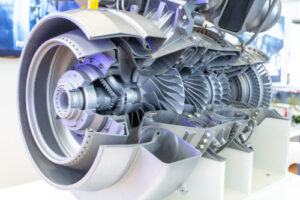Frontier Technology Corporation (FTC) is a premier manufacturer of californium-252 (Cf-252), an element capable of releasing 170 million neutrons per minute. This makes Cf-252 well-suited for use in neutron-based scanning and analysis processes, such as neutron radiography.
Neutron radiography (NR) is a non-destructive testing (NDT) method, meaning it is used to safely analyze the properties and/or structures of a material without causing damage to the sample. The following article provides an overview of non-destructive testing methods, including discussing the unique aspects of neutron radiography and how Cf-252 is integrated with these types of testing methods.
An Overview of Non-Destructive Testing (NDT)
As indicated above, the term “non-destructive testing”—also described as non-destructive examination (NDE) and non-destructive inspection (NDI)—refers to analysis processes that do not permanently alter the tested material. NDT methods are used for a variety of purposes, including evaluating a material’s composition and probing a component, assembly, or system for defects and damage. Their key advantage: minimized risks of degrading or destroying sensitive or critical materials. In the next section, we will provide specific usage examples of NDTs within the oil & gas and military & defense industries.
What Is Neutron Radiography?
Neutron radiography is an imaging method that relies on low-energy neutrons to analyze samples. The testing equipment emits a beam of neutrons that penetrates the sample and interacts with the nuclei of its atoms. Compared to x-rays and gamma rays, neutron radiation interacts more strongly with lighter elements (e.g., hydrogen) rather than denser elements. As a result, it is ideal for analyzing samples with thicker outer layers. For example, it can be used to inspect critical aerospace components such as energy fuses and turbine blades. Other applications include detecting moisture in organic samples and inspecting encapsulated archaeological samples.
This process allows industry professionals to obtain a better understanding of hard-to-image samples and subjects. However, there is one key drawback to using neutron radiography: it requires a strong and steady neutron-emitting source to power the imaging device.
As a powerful neutron emitting source, californium-252 is an effective solution to this problem. It is often used for portable isotopic neutron spectroscopy (PINS) and prompt gamma neutron activation analysis (PGNAA), both of which are neutron-based, non-destructive testing methods. PINS is an analysis process used by military personnel, homeland security, and customs and border protection agents to detect explosives, hazardous chemicals, and dangerous compounds within a suspected container. PGNAA is an analysis employed by professionals in the coal and cement, mining, and oil and gas industries to determine the elemental composition of the material within the targeted extraction site.
In summary, some of the industries that most commonly employ non-destructive testing methods include:
- Aerospace
- Energy
- Military
- Oil and gas
- Railroad
Californium-252 Neutron Sources for Neutron Radiography Operations
As a non-destructive testing method, neutron radiography is a great choice for analyzing a wide range of sensitive samples and subjects. Californium-252 provides the neutron-emitting capabilities needed to power these analysis processes. If you’re seeking the right Cf-252 source supplier, we at FTC are here to help.
At Frontier Technology Corporation, we’ve supplied top tier neutron sources for over 30 years. Our custom californium-252 sources are fabricated to accommodate the needs of various industries and industrial applications. We also provide Type A certified shipping containers for neutron sources (note that we do not provide these containers for gamma-ray sources) and ship to over 200 countries.
For additional information about californium-252, check out the following resources:
- A Complete Guide to Californium
- What You May Not Know About Californium-252
- eBooks & Resource Library
To learn more about non-destructive testing methods such as neutron radiography or our products and services, reach out to us today.

